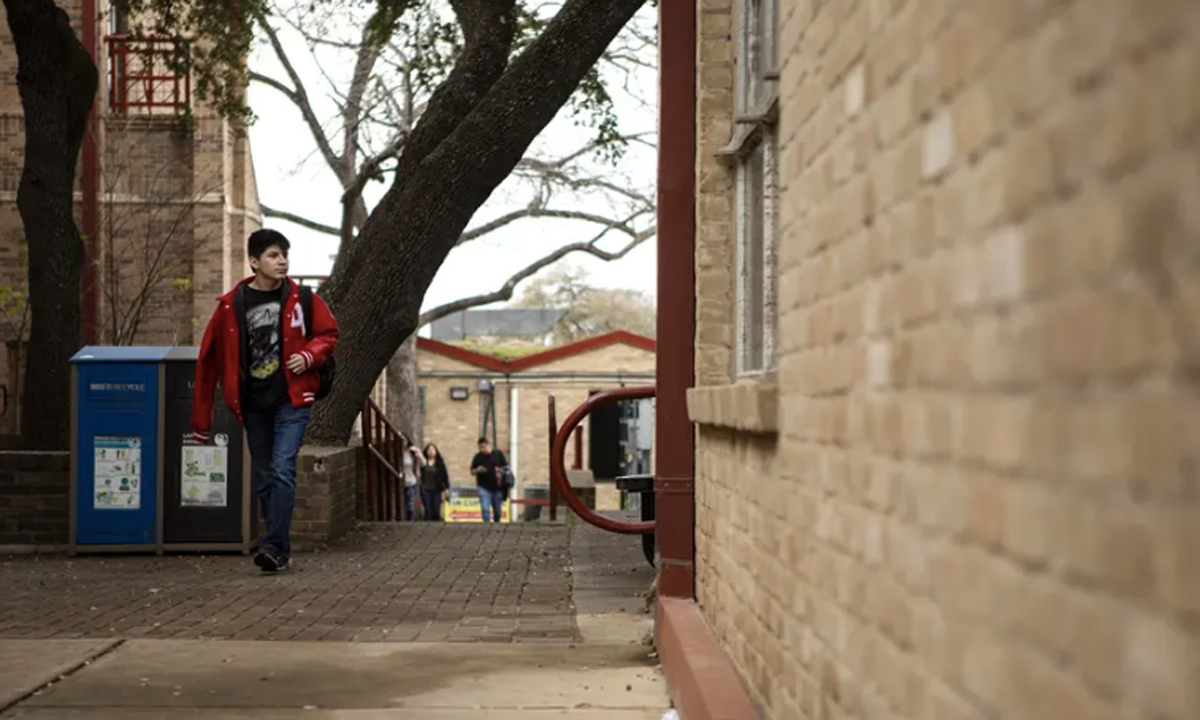Texas Poised to Fund Community Colleges Based on Student Outcomes
Supporters of the measure said it will help the colleges better prepare students for the workforce.

Get stories like this delivered straight to your inbox. Sign up for The 74 Newsletter
Bipartisan legislation that would overhaul how Texas funds its community colleges is heading to Gov. Greg Abbott‘s desk for approval after the House agreed to accept the Senate’s amendments Wednesday.
Last week, the Senate unanimously approved a House bill to fund the state’s community colleges based on how many of their students graduate with a degree or certificate or transfer to a four-year university. Currently, schools are largely funded based on the number of hours students spend in a classroom.
Bill sponsor Rep. Gary VanDeaver, R-New Boston, had previously told The Texas Tribune the House was likely to accept the Senate additions. VanDeaver served on a commission of lawmakers and community college presidents last year that recommended the changes, along with a long list of ways the state could better support the more than 642,000 students who attend Texas’ 50 community college districts.
The Senate added language from seven smaller higher education bills to the legislation, nearly all of which have already passed out of one or both chambers. These include legislation to provide new grant funds for students and workforce development, legislation to ease the student transfer process between two- and four-year schools, and one bill dealing with student privacy.
In a press release, a coalition of business and higher education advocates celebrated the bill’s passage.
“By 2030, 62 percent of all Texas jobs will require postsecondary credentials — but Texas businesses are already struggling to find qualified workers,” Justin Yancy, Texas Business Leadership Council President, said in a statement. “Now, thanks to the passage of House Bill 8, state leaders can continue to address the skilled workforce shortage, support our businesses, and ensure more Texans can earn self-sustaining wages.”
A new budget provision that is contingent on the legislation passing shows that in the next two years, the new funding model would direct about $2.2 billion toward public community colleges, compared with the old system, which would have provided $1.8 billion.
Texas community colleges are primarily funded by local property taxes, student tuition and fees, and state money.
While every community college receives a little over $1.3 million for core operations in each two-year budget, the rest of the money it receives from the state is allocated in two ways. The vast majority of that funding depends on how many hours of instruction students receive, called contact hours. The rest — around 10% — is awarded based on milestones like the number of students who complete their first year of math, earn 15 credit hours or graduate with an associate’s degree.
But over time, the state’s share has not kept pace with other sources of funding and now accounts for less than 25% of community colleges’ budgets. School leaders say the state needs to rethink how community colleges respond to workforce demands and prioritize efforts to enroll more students in programs for industries that pay well but don’t take a long time to complete.
House Bill 8 would shift the funding balance so most of the money that schools get from the state is based on student outcomes. Schools would compete for funding against their own progress in those areas.
Specifically, the legislation says the state would allocate funding to colleges based on metrics like the number of credentials they award in high-demand industries, the number of students who earn 15 credit hours and then transfer to a four-year university, or the number of high school students who earn at least 15 credits through a dual-credit program.
Instead of waiting for lawmakers to allocate a pot of funding each session, schools would be able to look at their data and determine what their funding levels would be.
“The new finance system will fundamentally shift how community colleges support their students, ultimately providing them with more valuable options as workforce programs receive as much of an emphasis as academic programs,” said Renzo Soto, a policy adviser for Texas 2036, a nonprofit focused on improving Texas’ future through public policy. “This all culminates into a greater focus on ensuring community colleges are delivering workforce returns for students, employers and the state through state funding tied to the student outcomes that matter most — earning a credential of value that prepares them for the workforce.”
HB 8 lays out a road map for the Texas Higher Education Coordinating Board to implement the new funding system, but it would require the state agency to determine many specifics such as the new formulas to calculate just how much money each college would receive. As the bill is written now, the state agency would have until Sept. 1 to put the new system in place. Texas Higher Education Commissioner Harrison Keller said that means the board would need to have the details decided by mid-July to get state approval.
Keller called the legislation historic and said it was crucial that all the community college leaders across the state backed the change.
“We could not contemplate making such a dramatic change so quickly without that strong partnership and buy-in from community college leaders across the state,” he said.
Disclosure: Texas 2036 has been a financial supporter of The Texas Tribune, a nonprofit, nonpartisan news organization that is funded in part by donations from members, foundations and corporate sponsors. Financial supporters play no role in the Tribune’s journalism. Find a complete list of them here.
This article originally appeared in The Texas Tribune, a member-supported, nonpartisan newsroom informing and engaging Texans on state politics and policy. Learn more at texastribune.org.
Get stories like these delivered straight to your inbox. Sign up for The 74 Newsletter

;)